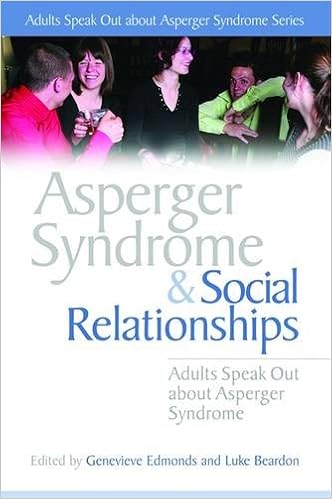Referrals are made to us by GPs or a member of the community mental health team, social services or an appropriate member of staff from a hospital ward or care unit. You can be referred for diagnosis and/or interventions.
Unfortunately, we are unable to provide a predicted waiting time. At your screening appointment waiting times will be discussed with you.
Waiting times are often long, and may vary due to the large number of referrals our team receives.
We are unable to endorse any private practice or company offering ADHD or Autism diagnostic assessments.
There is a range of support available in the county, depending on what support you need.
Citizens Advice Bureau
This charity offers confidential advice online, over the phone, and in person, for free in the following areas:
Benefits, Employment, Debt and Money, Consumer , Housing, Family. Law and Courts, Immigration, and Health.
This service is for people who need advice free, confidential information and advice to assist them with money, legal, consumer and other difficulties (mentioned above).
How to access this free service: You can access the service online on the Citizens advice bureau website, over the phone, or in person.
Community mental health adult– early intervention [N’STEP]
A team of consultants, clinical psychologists, community mental health nurses, occupational therapists, support time and recovery workers (STAR), employment specialists and peer support workers.
This countywide early intervention service incorporates low dose anti-psychotic medication, psycho-education, medication management, cognitive behavioural therapy, family intervention and relapse prevention.
This service is for people aged between 14-34 years who are experiencing their first episode of psychosis.
How to access this free service: Speak to your GP for a referral
Spectrum Club
Spectrum is a coffee morning for autistic adults.
People who attend the group have gained confidence in socialising with others, whilst also discussing their interests.
Tea, coffee, juice and biscuits is provided. It's a chance to improve your socialising skills and meet other people on the autism spectrum.
This service is for adults with any autism diagnosis.
How to access this free service: No need to book, you can just drop in. Held at Rooftop Arts Centre, 9 Chisholm House, Queens Square, Corby, Northamptonshire NN17 1PD.
When: Every Thursday from 11.00am until 1.00pm
TRACK NN (employment support)
TRACK NN support autistic people to access employment through training, support services and creating opportunities.
Thee work with businesses to ensure their workplaces are accessible to autistic people, they provide training to ensure that colleagues are aware of autism and making sure that any barriers to employment are removed.
How to access this free service: You can access Track NN online or contact Thomas Telephone: 07545354265 / Email: thomas@track.org.uk
Employment And Disability Service (EADS)
Helping people living with a disability or difficulties with their mental health to enter into the work place for the first time, or after a break.
They offer career guidance, support finding work (e.g. CV’S, confidence, work experience etc.) and help to keep people in the workplace once they've been successful.
This service is for adults with disabilities and/or mental health and/or neurodevelopmental conditions.
How to access this free service: Access the Olympus Care Services website
Keep Safe Card
 A card for people with disabilities who feel vulnerable in the community. It encourages people to report crime, makes people aware of their personal space and encourages people to seek help if they need it. There are lots of places in Northamptonshire that are keep safe places (will have logos outside) where staff have been trained around this scheme and ways they can help.
A card for people with disabilities who feel vulnerable in the community. It encourages people to report crime, makes people aware of their personal space and encourages people to seek help if they need it. There are lots of places in Northamptonshire that are keep safe places (will have logos outside) where staff have been trained around this scheme and ways they can help.
This service is for anyone in Northamptonshire who may have a disability or illness which makes them feel vulnerable when out and about.
How to access this service: Visit the Keep Safe Card website or phone: 01604 888963
Mayday Trust
Provides support for people experiencing difficult times in their lives. Mayday also provides housing in Northamptonshire, Oxford and Westminster through their Housing Transitions Service.
This service is for adults who are in a transition period, such as leaving care, or supported accommodation, stopping drug or alcohol use, coming out of prison or psychiatric hospital.
How to access this service: Visit the Mayday Trust website for more information
Mind - mental health charity
A wide range of mental health support across the county. Each Local Mind is an independent charity run by local people, for local people [free of charge]
This service is for: Anyone experiencing a mental health problem.
How to access this free service: Visit the Mind website for more information
National Autistic Society
The National Autistic Society (NAS) is a British charity for autistic people. The purpose of the organisation is to improve the lives of autistic people in the United Kingdom.
In addition to a wide range of adult and children's services for autistic people located across the UK, the charity has an Autism Helpline open 5 days a week, a range of products for professionals working with autistics and a campaigning function.
This service is for: People with Autism, their families, carers and professionals across the UK
How to access this service: Visit the National Autistic Society website or telephone the helpline: 0808 800 4104
The NAS online community is a discussion forum for autistic people, their families and other wider networks. It’s free to join and a great way to share experiences and advice.
The process to obtain medication if you are open to our team
You are unable to self-refer to our team. Referrals must come through by your GP and there must be a clinical need. A nurse prescriber will review, will screen the referral, and decide the outcome.
The process to obtain medication if you are currently not open to our team.
If you are not open to our team yet, you will be sent an appointment for a need assessment. Following this assessment, the Nurse will discuss the outcome. If you are suitable for medication, you will be placed either on a prescriber’s waiting list or referred to CMHT depending on complexity
How long is the waiting time for medication?
- Unfortunately we are unable to give you an indication of our waiting times, however you will be contacted once you reach the top of the waiting list
- We are unable to prioritise anyone and your wating time starts once the prescriber has received your Physical health checks.
What support can I access while waiting for medication
If you are open to the advice service you will be able to attend psychosocial interventions in the interim, please be mindful that this support is for ADHD symptoms only. If you need mental health support, please contact your GP or the Mental health integrated Hub.
Can I self-refer for medication, if I already have an ADHD diagnosis and/or want a medication review.
No you are unable to self-refer for medication. Your GP can re-refer to us if a clinical need is indicated.
What do I need to do before my medication appointment?
- You need to be registered with a GP and you must attend a Physical health assessment with you GP. It is YOUR responsibility to book this appointment with your GP
- Physical health checks that are required prior to starting medication are: Blood pressure, Pulse rate, BMI, weight, Height. We also require a medical summary.
How will the consultations take place?
- You will be contacted by email or SMS for all your appointments, so it is YOUR responsibility to ensure your contact details and email address is up to date.
- All our calls will be from a withheld number, so please be mindful of this.
What happens if I DNA (Did not attend)?
- A DNA is classed as less than 24hour notice or not attending an appointment
- If you miss more than two appointments during titration you will be discharged.
- You will not be offered an appointment immediately after missing an appointment unless you have called in 24 hours prior to the appointment. You will have to wait for the next available appointment which will be at least 2 weeks.
- The prescriber will NOT be able to write you an emergency prescription in the interim, which means you will be without medication.
About the titration process.
- The titration process can take up to 12 weeks
- Prescriptions can only be collected at St Marys Hospital Kettering or Campbell house Northampton. We are unable to post or send to local GP or pharmacist.
- You MUST provide a blood pressure, pulse, and weight at each review. The prescriber will NOT be able to increase without these readings. Therefore, you will go without medication, and you will still be discharged within the 12 weeks even if you have not met your optimal dose.
- You must collect your prescription and start the medication within a timely frame.
- We are not an emergency service, If you are having any side effects please seek further support via your GP or 111. If it is non urgent you will need to await your next review.
What happens at discharge?
Once stable on medication, your care will be transferred over to your GP under shared care agreement for continuity of your ADHD medication.
- If you are discharged due to non-attendance, the prescriber will discharge you under shared care agreement on the last review dose for safety reasons.
- Once you are discharged to your GP, you are no longer under our team therefore any quires must go to your GP.
ADHD medication shortage
Your must try other pharmacies to see if they have stock
- Prescribers are limited to what they during medication shortages, Clients may have to take a break during this time. Please be mindful that a shortage of medication is only for a short duration.
Medication Shortage of Elvanse
There is a national shortage of Elvanse at the minute, and this is completely out of the prescribers control. There are also no alternatives at present, so we are unable to support any one who is currently being prescribed Elvanse. If you have been discharged to your GP, once stock is back your GP will be able to prescribe your medication again, if you are on a high dose, we recommend that you split the dose in half and have it with diluted water on the first few days, to get your body adjusted to the medication again. It is safe to stop the medication, and then to re-start it again.
If you are currently under the care of one of the prescribers, this will be discussed further with you at your next medication review.
We are sorry for the inconvenience and the frustration around the shortage of ADHD medication, but this is a national shortage and everyone on this treatment is being informed the same information.
Many thanks,
ADHD Prescribing Team





 Thriving with Adult ADHD: Skills to Strengthen Executive Functioning - by Phil Boissiere
Thriving with Adult ADHD: Skills to Strengthen Executive Functioning - by Phil Boissiere When an Adult You Love Has ADHD: Professional Advice for Parents, Partners, and Siblings - by Russell A. Barkley
When an Adult You Love Has ADHD: Professional Advice for Parents, Partners, and Siblings - by Russell A. Barkley A Radical Guide for Women with ADHD: Embrace Neurodiversity, Live Boldy, and Break Through Barriers - by Sari Solden and Michelle Frank
A Radical Guide for Women with ADHD: Embrace Neurodiversity, Live Boldy, and Break Through Barriers - by Sari Solden and Michelle Frank Taking Charge of Adult ADHD - by Russell A. Barkley
Taking Charge of Adult ADHD - by Russell A. Barkley Smart But Stuck: Emotions in Teens and Adults with ADHD - by Thomas E. Brown
Smart But Stuck: Emotions in Teens and Adults with ADHD - by Thomas E. Brown Nerdy, Shy, and Socially Inappropriate: A User Guide to an Asperger Life - by Cynthia Kim
Nerdy, Shy, and Socially Inappropriate: A User Guide to an Asperger Life - by Cynthia Kim Look Me in the Eye: My Life with Asperger's - by John Elder Robison
Look Me in the Eye: My Life with Asperger's - by John Elder Robison Odd Girl Out: An Autistic Woman in a Neurotypical World - by Laura James
Odd Girl Out: An Autistic Woman in a Neurotypical World - by Laura James The Autistic Brain - by Temple Grandin
The Autistic Brain - by Temple Grandin Autism and Asperger Syndrome in Adults - by Luke Beardon
Autism and Asperger Syndrome in Adults - by Luke Beardon Very Late Diagnosis of Asperger Syndrome (Autism Spectrum Disorder): How Seeking a Diagnosis in Adulthood Can Change Your Life - by Philip Wylie
Very Late Diagnosis of Asperger Syndrome (Autism Spectrum Disorder): How Seeking a Diagnosis in Adulthood Can Change Your Life - by Philip Wylie  "That's Not Right!": My Life Living with Asperger's by Alex Manners
"That's Not Right!": My Life Living with Asperger's by Alex Manners The Asperger Love Guide: A Practical Guide for Adults with Asperger's Syndrome to Seeking, Establishing and Maintaining Successful Relationship by Genevieve Edmonds & Dean Worton
The Asperger Love Guide: A Practical Guide for Adults with Asperger's Syndrome to Seeking, Establishing and Maintaining Successful Relationship by Genevieve Edmonds & Dean Worton  Asperger Syndrome & Social Relationships by Genevieve Edmonds and Luke Beardon
Asperger Syndrome & Social Relationships by Genevieve Edmonds and Luke Beardon The Other Half of Asperger Syndrome (Autism Spectrum Disorder): A Guide to Living in an Intimate Relationship with a Partner who is on the Autism Spectrum by Maxine Aston
The Other Half of Asperger Syndrome (Autism Spectrum Disorder): A Guide to Living in an Intimate Relationship with a Partner who is on the Autism Spectrum by Maxine Aston  Marriage & Lasting Relationships with Asperger’s Syndrome (Autistic Spectrum Disorder) Successful Strategies for Couples or Counselors by Eva A Mendes
Marriage & Lasting Relationships with Asperger’s Syndrome (Autistic Spectrum Disorder) Successful Strategies for Couples or Counselors by Eva A Mendes Troubleshooting Relationships on the Autism Spectrum: A User's Guide to Resolving Relationship Problems by Ashley Stanford
Troubleshooting Relationships on the Autism Spectrum: A User's Guide to Resolving Relationship Problems by Ashley Stanford